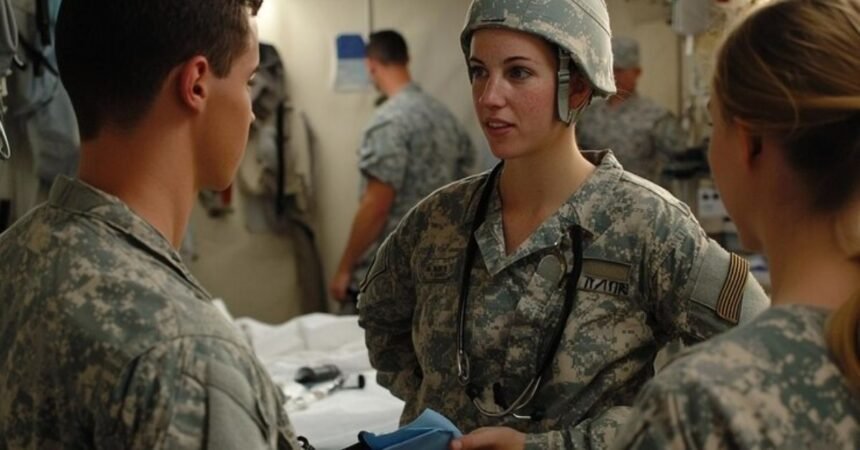The U.S. Air Force Reserve provides critical support to the nation’s defense, and units like USAFR-482W/CCK play an essential role in this mission. Under the skilled leadership of professionals like Raquel Mendoza, USAFR-482W/CCK helps maintain a high state of readiness, bridging active-duty and reserve operations seamlessly. This article explores the responsibilities of USAFR-482W/CCK, Raquel Mendoza’s contributions, and the unit’s impact on the U.S. Air Force Reserve’s capabilities. By understanding the key concepts, challenges, and benefits associated with USAFR-482W/CCK, readers will gain insights into the pivotal role this unit plays in supporting the Air Force.
Detailed Explanation of USAFR-482W/CCK Raquel Mendoza
What is USAFR-482W/CCK Raquel Mendoza?
USAFR-482W/CCK is a unit within the U.S. Air Force Reserve, focusing on logistical coordination, mission readiness, and personnel support. This unit’s role is essential to ensure that reserve personnel, equipment, and training align with the Air Force’s strategic needs. USAFR-482W/CCK assists in the seamless integration of active-duty and reserve operations, providing additional manpower and resources when needed.
Who is Raquel Mendoza?
Raquel Mendoza is a dedicated leader within USAFR-482W/CCK, known for her expertise in logistics, personnel management, and mission planning. Her role involves coordinating resources, ensuring personnel training, and managing the logistical elements that enable mission success. Mendoza’s work within the unit exemplifies her commitment to excellence, supporting the Air Force Reserve’s readiness and efficiency.
The Role of the Air Force Reserve
The Air Force Reserve serves as a strategic component of the U.S. Air Force, providing supplemental manpower and resources that can be mobilized in times of need. The Reserve plays a unique role in bolstering national defense, offering both part-time and full-time personnel who are trained and ready to support active-duty missions. Units like USAFR-482W/CCK are vital to maintaining the Reserve’s ability to integrate with active forces and respond to various operational demands.
Core Responsibilities of USAFR-482W/CCK
The USAFR-482W/CCK unit is tasked with several key responsibilities:
- Logistics and Resource Coordination: Ensuring supplies, equipment, and transportation are available and efficiently allocated.
- Personnel Management: Overseeing training and deployment schedules, ensuring that reservists meet readiness standards.
- Mission Planning and Support: Aligning unit operations with broader Air Force objectives, supporting both domestic and international missions.
- Emergency Response and Support: Preparing personnel and resources to respond to natural disasters and other emergencies.
Each of these responsibilities is essential to the unit’s mission and the overall readiness of the Air Force Reserve.
Importance and Benefits
Why USAFR-482W/CCK is Essential to the U.S. Air Force Reserve
The USAFR-482W/CCK unit is critical to the U.S. Air Force Reserve, as it ensures personnel and resources are well-prepared to support active-duty operations when required. Through robust training, logistical planning, and mission readiness, USAFR-482W/CCK helps enhance the nation’s defensive capabilities. Without this unit’s support, the Air Force Reserve would face challenges in maintaining readiness and meeting the demands of diverse missions.
Key Benefits of USAFR-482W/CCK’s Contributions
- Improved Mission Readiness: USAFR-482W/CCK prepares reservists for deployment, ensuring they are ready for immediate support when called upon.
- Efficient Use of Resources: The unit’s logistical coordination allows for optimized resource allocation, reducing operational costs.
- Enhanced Support for Active-Duty Operations: By providing reserve personnel and equipment, the unit reduces the strain on active-duty forces.
- Versatility in Mission Response: USAFR-482W/CCK’s flexibility enables it to support a range of missions, from combat to humanitarian aid.
The Impact of Raquel Mendoza’s Leadership on USAFR-482W/CCK
Under Raquel Mendoza’s leadership, USAFR-482W/CCK maintains a high standard of readiness, with an emphasis on training and resource management. Mendoza’s strategic approach ensures that reservists are prepared to meet the diverse demands of Air Force operations, contributing to a culture of excellence within the unit. Her dedication to effective coordination and personnel management has proven essential to the unit’s ongoing success.
Applications and Use Cases
Disaster Relief and Emergency Response
USAFR-482W/CCK is instrumental in disaster relief, providing manpower and resources during emergencies. For instance, in the aftermath of hurricanes, floods, and other natural disasters, reservists from this unit are deployed to assist with recovery efforts. Raquel Mendoza’s team ensures that personnel are trained and prepared for such scenarios, providing vital support when communities need it most.
Combat and Overseas Support
The Air Force Reserve, with support from USAFR-482W/CCK, often provides backup for active-duty forces during international deployments. This includes preparing personnel for combat zones, managing logistics, and ensuring that reserve forces are equipped and trained for high-stakes operations. Mendoza’s leadership is key to ensuring these forces meet rigorous standards, contributing to the effectiveness of international missions.
Humanitarian Aid and Medical Assistance
USAFR-482W/CCK’s versatile operations extend to humanitarian missions, where personnel provide medical and logistical support in response to global crises. Reserve forces trained under Mendoza’s guidance have participated in numerous humanitarian efforts, delivering essential services to communities affected by conflict or disaster. This demonstrates the unit’s commitment to a wide range of mission types, both combat and non-combat.
Case Study: USAFR-482W/CCK’s Role in Hurricane Relief Efforts
In response to Hurricane Harvey, USAFR-482W/CCK played a critical role in the Air Force Reserve’s relief efforts. Raquel Mendoza and her team coordinated logistics, deployed personnel, and ensured essential supplies reached affected areas. The unit’s swift response and operational efficiency underscored its value in disaster relief, helping communities recover from the devastating impact of the hurricane.
Challenges and Solutions
Challenges Faced by USAFR-482W/CCK
- Balancing Training with Civilian Commitments: Reservists must balance military training with civilian responsibilities, which can make readiness difficult to maintain.
- Resource and Budget Limitations: Managing resources within budget constraints is a challenge, especially given the unit’s broad range of responsibilities.
- Complexity of Joint Operations: Integrating reserve forces with active-duty units requires careful coordination and clear communication.
- Unpredictable Mission Requirements: The unit must be prepared to respond to a variety of missions, often with short notice.
How Raquel Mendoza and USAFR-482W/CCK Address These Challenges
- Flexible Training Programs: Mendoza implements flexible training schedules that accommodate reservists’ civilian commitments, ensuring high levels of readiness.
- Optimized Resource Allocation: Mendoza’s resource management strategies prioritize essential needs, allowing the unit to operate effectively within budget.
- Enhanced Coordination with Active-Duty Forces: By fostering open communication, Mendoza ensures the unit aligns smoothly with active-duty counterparts during joint missions.
- Proactive Mission Planning: Through continuous readiness assessments, the unit prepares for various scenarios, allowing quick response times for unpredictable missions.
Overcoming Misconceptions About the Air Force Reserve
There is a common misconception that reserve units like USAFR-482W/CCK are secondary to active-duty forces. In reality, reserve units provide critical support that enhances the operational capacity of the Air Force. Raquel Mendoza works to address these misconceptions by ensuring that reservists meet rigorous standards and are trained for a wide range of missions, demonstrating the indispensable role of the Reserve.
Continuous Improvement Through Feedback
Mendoza emphasizes a culture of continuous improvement, incorporating lessons learned from each mission into future operations. This approach involves regular evaluations, feedback sessions, and updated training protocols, ensuring that USAFR-482W/CCK evolves to meet new challenges effectively.
Conclusion
USAFR-482W/CCK, with the leadership of Raquel Mendoza, is a vital part of the Air Force Reserve, supporting the readiness and operational efficiency of the U.S. Air Force. Through effective personnel management, logistical support, and mission preparedness, this unit ensures that reserve forces can meet the demands of national defense. Raquel Mendoza’s strategic approach enhances the unit’s capabilities, preparing it to respond to everything from disaster relief to combat support. For those interested in learning more about the impact of the U.S. Air Force Reserve, USAFR-482W/CCK exemplifies the dedication and readiness that define these essential operations.
FAQs
1. What is USAFR-482W/CCK’s primary role?
The USAFR-482W/CCK unit focuses on mission readiness, personnel management, and logistical support for the Air Force Reserve.
2. Who is Raquel Mendoza, and what does she do at USAFR-482W/CCK?
Raquel Mendoza is a leader within USAFR-482W/CCK, responsible for coordinating logistics, managing personnel, and supporting mission planning.
3. How does USAFR-482W/CCK support disaster relief?
The unit deploys personnel and resources during natural disasters, providing essential logistical and manpower support to aid recovery efforts.
4. What challenges does USAFR-482W/CCK face?
Challenges include managing resources within budget limits, balancing training with civilian roles, and coordinating joint operations with active-duty forces.
5. Why is the Air Force Reserve important to national defense?
The Air Force Reserve provides additional manpower and resources, ensuring the Air Force can respond effectively to various operational demands.




